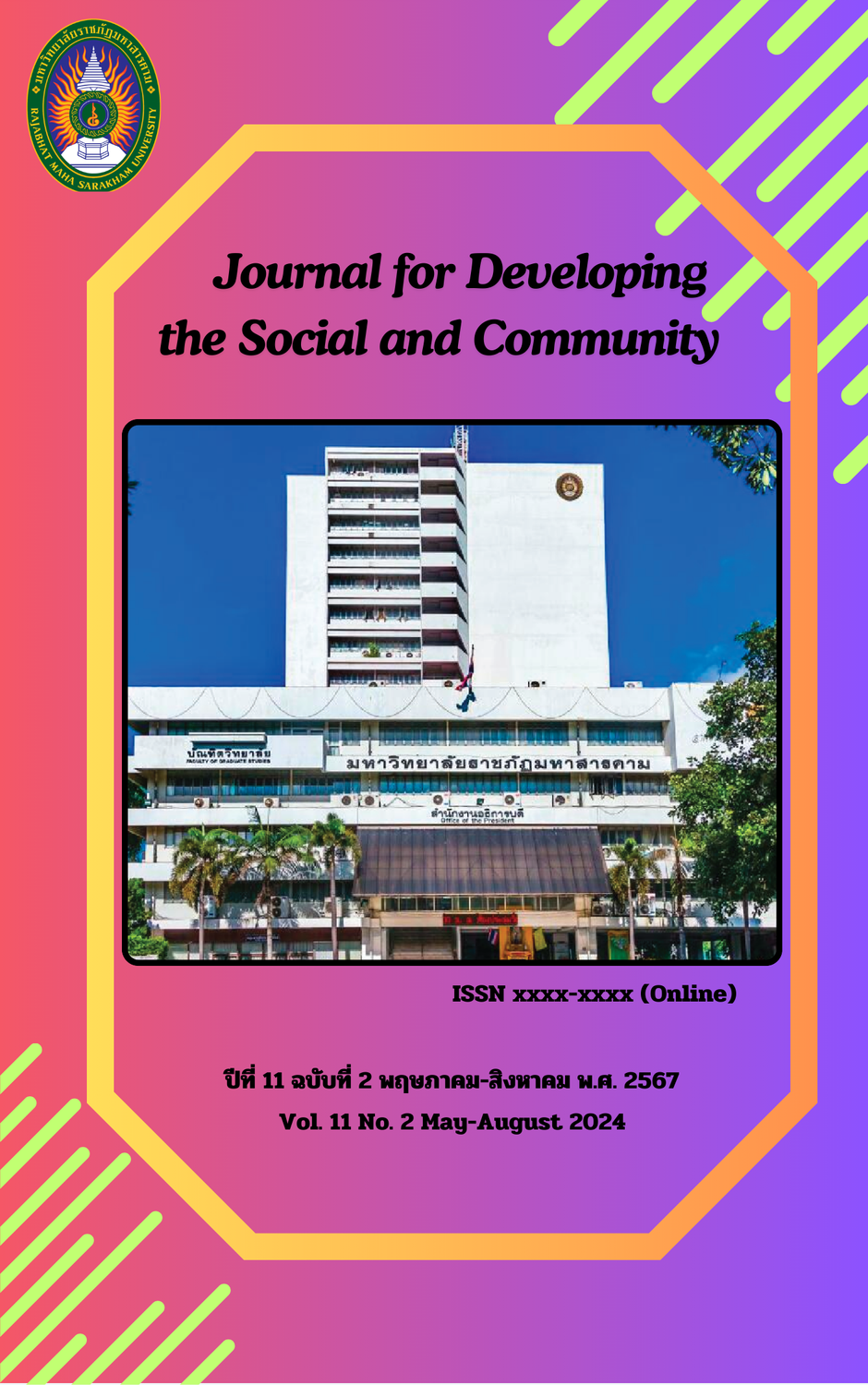Competency Development of Health Volunteers (VHVs) in Efficient of the Elder Community Healthcare
Keywords:
Competency development, Village Health Volunteers, Elder ’s CommunityAbstract
This research article has a purpose to (1) study the elders’ healthcare situations ,healthcare management team (2) to evaluate the level of healthcare management of Health Volunteers (VHVs) in the elder community healthcare. ( 3) to study the relationship of the factors related to the handle community’s elder healthcare and (4) The approach to competency development of health volunteers (VHVs) in Efficient of the Elder Community Healthcare.
This research is explanatory research ,cross-sectional study .Data were collected from 240 village health volunteers (VHVs) and 30 local health officials (Tambon health promoting hospitals’ officials, villager headmen, and presidents of Tambon and district VHVs’ clubs) among assigned areas of Saraburi, Trang, Petchaboon, Lopburi, Rayong and Nakhonratchasima. Statistics of descriptive basis, Pearson product-moment correlation, and Chi-square were used in this research. The result was found that (1)The elder’s healthcare situations as being responsible, had been evaluated to be high level .(2)the opinion in healthcare management of Health Volunteers (VHVs) in the elder community healthcare were shown to be underrated. Moderate scores had been presented in policy perceiving, villager & community participation, and VHVs’ accountability & development.The activities towards community elders, healthcare takers presented highest scores in handling of activities, accountability, and professionalism. Whereas moderate scores were observed in participation, key factors, and basic knowledge & skills., (3)The factors related to the handle community’s elder healthcare, were skills and experiences and other factors were occupation, gender, age and income. Whereas marriage status, duration to take-in-charge as VHVs had been addressed to be not correlated. and the highest relation to the VHVs for handling elder healthcare was the training curriculum and 4)The approach to development of are clear policies & communication, budgeting and equipments support ,effective training courses for VHVs and officials whom take-in-charge for community’s elder healthcare .
References
Dye, Thomas R. (1984). Understanding Public Policy. (5thed), Englewood Cliffs. New Jersey: Prentice -Hall, Inc.
Harris, D. (1987). Justifying State Welfare. Oxford: Blavkwell.
Kaschanon, P. et al. (2017). Interdisciplinary studies for local development. Bangkok: Ramkhamhaeng University.
Paonil, W. (2007). Support mechanisms and the role of public health volunteers. Nonthaburi: Social and Health Research Institute.
Public Health Support Division. (2014). The evolution of primary health care in Thailand (1978-2014). Bangkok: Office of the War Veterans Organization Printing House.
Public Health Support Division. (2014). Training course for village health volunteers (VHVs) and community health managers in 2014. Bangkok: Office of the War Veterans Organization Printing House.
Public Health Support Division. (2017). Guidelines and criteria for selecting and evaluating outstanding, excellent, and extremely excellent village health volunteers, and related regulations. Nonthaburi: Sittichok Printing Partnership.
Public Health Support Division. (2017). Ministry of Public Health regulations on village health volunteers B.E. 2554, along with regulations related to village health volunteers. Nonthaburi: Best Time Marketing Co., Ltd.
Spencer, L. M., and Spencer, S. M. (1993). Competency at Work: Models for Superior Performance. New York: John Wiley & Sons.
Spencer, L. M., Jr., Spencer, S. M. (1990). Competency assessment methods: History and state of the art. Boston: Hay/McBer Research Press.
Timuss. Richard M. (1974). Social Policy an Introduction. London: Goerge.Allen& Unwin.
Downloads
Published
How to Cite
Issue
Section
License
Copyright (c) 2024 Journal for Developing the Social and Community

This work is licensed under a Creative Commons Attribution-NonCommercial-NoDerivatives 4.0 International License.
Articles that are published are copyrighted by the authors of the articles







